Affiliated Scholars

Bio: Steven Barnes is the author of the award-winning Death and Redemption: The Gulag and the Shaping of Soviet Society, (Princeton University Press, 2011), one of the first attempts to reconceptualize the meaning of the Gulag and forced labor in the Soviet Union based on a combination of newly opened archival materials in Russia and Kazakhstan and personal accounts. He is currently completing a book on women’s experiences in a Gulag camp in Kazakhstan in the midst of Stalin’s Great Terror. In addition, he is in the early stages of a major synthetic work on the global history of the concentration camp in the 20th and 21st centuries, a subject on which he has taught frequently at George Mason.
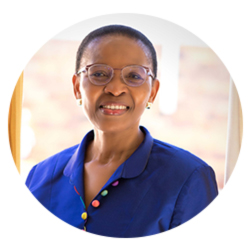
Pumla Gobodo-Madikizela
Professor, South African National Research Foundation Chair in Violent Histories and Transgenerational Trauma, Stellenbosch University
Areas: Historical trauma, transgenerational trauma in the global south, victim testimonies and perpetrators, remorse and forgiveness.
Pumla Gobodo-Madikizela is Professor and Research Chair in Violent Histories and Transgenerational Trauma at Stellenbosch University. Her research interest is in historical trauma and its transgenerational repercussions and exploring the “repair” of these traumatic legacies. She has published extensively on victims and perpetrators of gross human rights violations, and on forgiveness and remorse. Among her honors are an honorary doctorate of theology from the Friedrich Schiller University Jena, an honorary doctorate of law from Rhodes University, and a Christopher Award and the Alan Paton Award for her first book, A Human Being Died that Night: A South African Story of Forgiveness. She holds the prestigious Harry Oppenheimer Fellowship and recently completed a fellowship at Harvard University’s Radcliffe Institute.
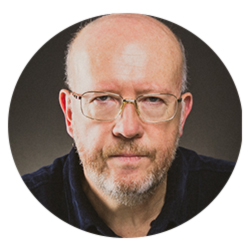
Bio: Jan Grabowski is a Professor of History at the University of Ottawa and a Fellow of the Royal Society of Canada. His interests focus on the Holocaust in Poland and, more specifically, on the relations between Jews and Poles during the war. Professor Grabowski’s book: Hunt for the Jews. Betrayal and Murder in German-Occupied Poland has been awarded the Yad Vashem International Book Prize for 2014. In 2020 Grabowski has been appointed a Distinguished Fellow at the Institut für Zeitgeschichte in Munich, Germany. In 2018 he co-edited and co-authored “Dalej jest noc” (a two-volume study of the fate of the Jews in selected counties of occupied Poland), to be published later this year in English by Indiana University Press. His most recent book “On Duty. The Role of the Polish “Blue” Police in the Holocaust” (“Na Posterunku. Udział Polskiej Policji Granatowej i kryminalnej w Zagładzie Żydów”, Czarne Publishing House), has been published in Poland, in March 2020.
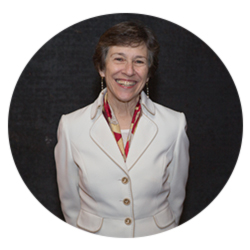
Marion Kaplan is the Skirball Professor of Modern Jewish History at NYU. She is a three-time National Jewish Book Award winner for The Making of the Jewish Middle Class: Women, Family and Identity in Imperial Germany (1991), Between Dignity and Despair: Jewish Life in Nazi Germany (1998), and Gender and Jewish History (with Deborah Dash Moore, 2011) as well as a finalist for Dominican Haven: The Jewish Refugee Settlement in Sosua (2008). Her other monographs include: The Jewish Feminist Movement in Germany; Jewish Daily Life in Germany, 1618-1945 (ed.); and Hitler’s Jewish Refugees: Hope and Anxiety in Portugal, 1940-45 (2020).
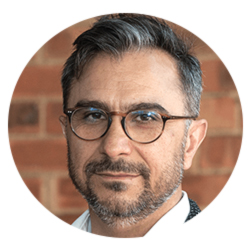
Fazil Moradi
Johannesburg Institute for Advanced Study (JIAS), University of Johannesburg
Areas: Violence of Modern/Colonial State; Imperial-Colonialism; Modernity’s Infrastructure of Destruction and Memory; Critical Epistemicide, Femicide, and Genocide Studies; Algorithmic Modernity; Traveling and Decolonial Knowledge; Justice and Law; Hospitality; Translation.
Fazil Moradi is a visiting associate professor at Faculty of Humanities – Johannesburg Institute for Advanced Study, University of Johannesburg, where he is also the convener of a monthly Actuvirtual Symposium; associate researcher at the Institute for Social Anthropology, Austrian Academy of Sciences, and member of Law, Organization, Science and Technology; Research Network, Sci-Tech Asia Research Network; and Refugee Outreach & Research Network. He has been a researcher at Max Planck Institute for Social Anthropology in Halle, and taught at the Institute for Social and Cultural Anthropology, University of Halle in Germany. In addition to his own transdisciplinary inquiries, he works together with medical science scholars on the long-term impacts of chemical warfare agents at Sahlgrenska Academy – University of Gothenburg in Sweden.
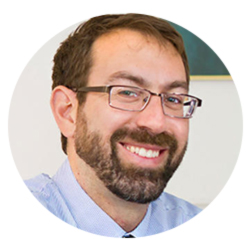
Samuel Moyn is Henry R. Luce Professor of Jurisprudence at Yale Law School and Professor of History at Yale University. He is the author of many books, including A Holocaust Controversy: The Treblinka Affair in Postwar France (2005).
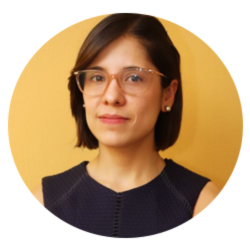
Ana María Méndez Dardón is a licensed lawyer in Guatemala with a BA in Law and Social Sciences specializing in International Human Rights Law from the Universidad de San Carlos, Guatemala. She holds a Graduate Diploma in International Human Rights and Gender from the Universidad de Chile Law School. In 2017, she completed her MA in Political Science and Comparative Politics at the University of Guelph in Canada. Méndez Dardón has worked to strengthen access to justice in Guatemala. She served as special projects officer to Iván Velásquez, commissioner of the UN-backed International Commission against Impunity in Guatemala (CICIG). Prior to her work at CICIG, Méndez Dardón was under-secretary of strategic and private affairs to Guatemala’s first female attorney general, Claudia Paz y Paz. During this time, many high-impact transitional justice cases of gross human rights violations were prosecuted, such as genocide. A frequent contributor to El Periódico. She is co-author of Mujeres ante los tribunales de fuero especial an examination of women who were illegally detained by military forces during the dictatorship of Efrain Rios Mont (Guatemala 1982-1983).

Isaias Rojas-Perez is Associate Professor of Anthropology at Rutgers University-Newark. His research interests draw from his previous long-term experience as professional human rights activist in Peru, during the worst moments of the armed conflict between two guerrilla groups and the security forces (1980-2000). Rojas-Perez has conducted extensive ethnographic fieldwork among Quechua survivors of state terror and relatives of the “disappeared” in Andean Peru’s former worn-torn areas. In 2018, his book Mourning Remains: State Atrocity, Exhumations, and Governing the Disappeared in Peru’s Postwar Andes (Stanford University Press, 2017) won two awards: The Association for Legal and Political Anthropology Book Prize and the LASA-Peru Flora Tristan Book Prize. Rojas-Perez has also authored several articles and book-chapters on transitional justice in post-conflict Peru.

Raz Segal
Associate Professor of Holocaust and Genocide Studies, Endowed Professor in the Study of Modern Genocide at Stockton University, Director of the Master of Arts in Holocaust and Genocide Studies, Stockton University
Areas: Holocaust and Genocide Studies; Modern European history (with a focus on central and southeast Europe); Jewish history
Dr. Raz Segal is Associate Professor of Holocaust and Genocide Studies and Endowed Professor in the Study of Modern Genocide at Stockton University, where he also serves as director of the Master of Arts in Holocaust and Genocide Studies (MAHG). He is also founder and co-coordinator of the Refugee Studies Initiative at Stockton. Focusing on central and southeast Europe, Dr. Segal is engaged in his work with the challenges of exploring the Holocaust as an integral part of late modern processes of imperial collapse, the formation and occasional de-formation of nation-states, and their devastating impact on the societies they sought — and still seek — to break and remake. Dr. Segal has held a Harry Frank Guggenheim Fellowship, a Fulbright Fellowship, and a Lady Davis Fellowship at the Hebrew University of Jerusalem. His publications include Genocide in the Carpathians: War, Social Breakdown, and Mass Violence, 1914-1945 (Stanford: Stanford University Press, 2016; paperback 2020), and he was guest editor of the special issue on Genocide: Mass Violence and Cultural Erasure of Zmanim: A Historical Quarterly, vol. 138 (June 2018) (Hebrew). Dr. Segal has also published book reviews, op-eds, and larger articles on genocide, state violence, and memory politics in Hebrew and English in Haaretz and +972 Magazine.
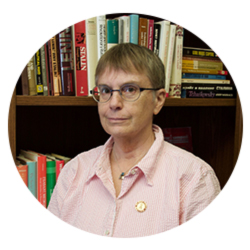
Lynne Viola received her PhD from Princeton University. She is a specialist in 20th century Russian history and the author of five books, and 17 volumes of previously classified archival documents from Russian and Ukrainian archives. Her most recent book, Stalinist Perpetrators on Trial: Scenes from the Great Terror in Soviet Ukraine (Oxford, 2017), received the 2018 Zelnik Prize from ASEEES and the 2018 American Association of Ukrainian Studies Book Prize. A recipient of a Guggenheim Fellowship, she was inducted into the Royal Society of Canada in 2014, and subsequently was awarded a Killam Prize in 2019. She is a member of the University of Toronto’s History Department with cross appointments to the Munk School of Global Studies and the Higher School of Economics.
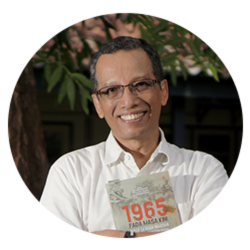
Baskara Wardaya
Lecturer, Department of History, Sanata Dharma University
Areas: History of Indonesia post-1945; US-Indonesian Relations during the Cold War; the 1965 Indonesian anti-communist purge.
Baskara T. Wardaya is a tenured lecturer of history at Sanata Dharma University, Yogyakarta, Indonesia. He holds a Master’s degree and a PhD degree in History from Marquette University, Milwaukee, Wisconsin, USA. In 2004-2005 he conducted postdoctoral research in the US on US-Indonesian relations during President Lyndon B. Johnson’s administration (1963-69), funded by the Fulbright scholarship program. In 2011-2012 he was awarded Fulbright Scholar in Residence grant to teach history of Southeast Asia at the University of California-Riverside. In 2014 he received grant from AIFIS (American Institute for Indonesian Studies) to conduct research on US-Indonesian relations during President Richard Nixon’s administration (1969-74). Among his works related to the 1965 tragedy in Indonesia are Truth Will Out (2013); Luka Bangsa Luka Kita (2014); and Memori Genosida (2021).

